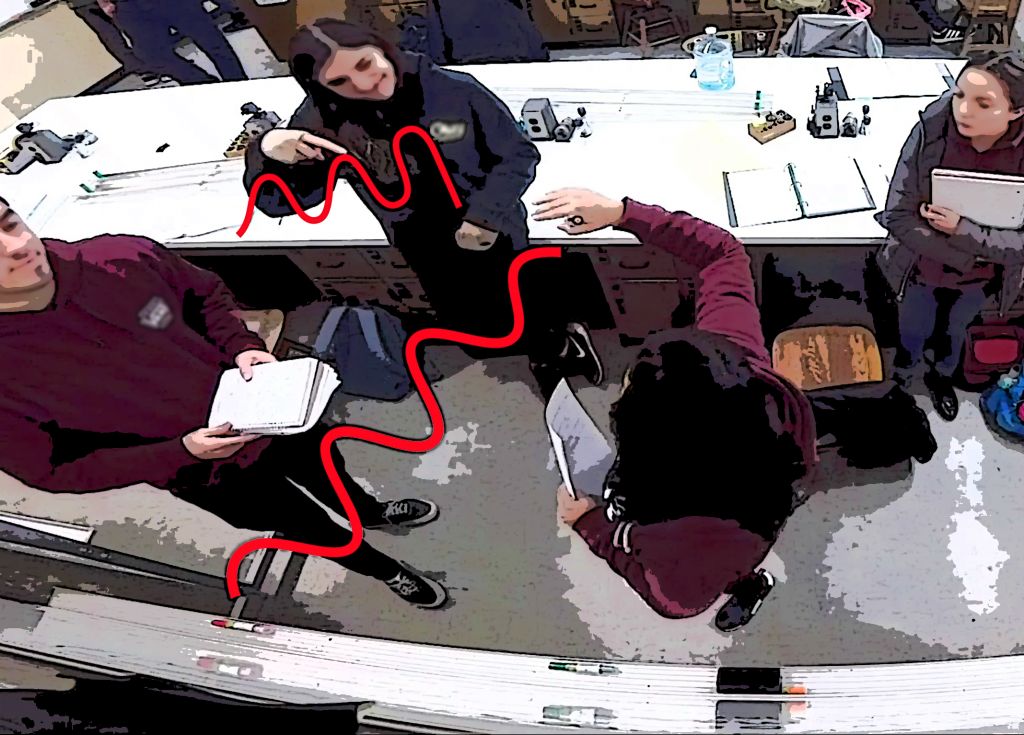DiGEST Physics: Dialogic gesture in collaborative sense making in physics
NSF ECR-EHR Core Research (Award #2201821)

Active, collaborative learning approaches are widely seen as effective ways for students to learn undergraduate science, technology, engineering, and mathematics (STEM). However, learning outcomes are highly contingent on the quality of the interactional processes in which students engage. There is a great deal of research on successful verbal communicational practices in group work, but little is known about how nonverbal communicational practices like gesture contribute to successful collaboration. Previous research shows that when groups are responsive to, take up, and discuss one another’s spoken ideas, they are more successful at collaborative problem solving in STEM. In this project, researchers will investigate (1) how students are responsive to, take up, exchange, or interact with each other’s gestures while working together, and (2) how this behavior shapes or constrains groups’ problem solving and sense making in introductory undergraduate physics. This project will improve our understanding of the role nonverbal communication plays in collaborative learning, and it will contribute to the development of broader, more expansive, and inclusive definitions of the competencies and practices involved in learning and doing STEM.
This project is supported by NSF’s EHR Core Research (ECR) program. The ECR program emphasizes fundamental STEM education research that generates foundational knowledge in the field. Investments are made in critical areas that are essential, broad and enduring: STEM learning and STEM learning environments, broadening participation in STEM, and STEM workforce development. The program supports the accumulation of robust evidence to inform efforts to understand, build theory to explain, and suggest intervention and innovations to address persistent challenges in STEM interest, education, learning and participation.
